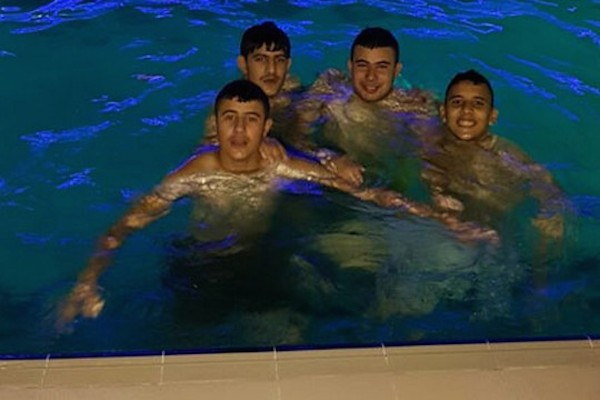A 15-year-old boy is shot and killed, and the soldiers who shot him — in violation of army regulations — will likely never see the inside of a prison cell. The situation is both outrageous, and the most normative end to this story and countless others just like it.

The Israeli soldier and army officer who opened fire on a car full of teenagers coming home from an evening at the pool in the summer of 2016, killing a 15-year-old boy, will face no criminal charges, according to a report in Haaretz last week. The soldiers will never see the inside of a prison cell. The family will be denied any sense of justice or closure.
Perhaps even more outrageous is the message this decision sends to other soldiers, and to the millions of Palestinians whose lives, and whose children’s lives, can be taken at any moment by those soldiers.
No one disputes the facts: the two soldiers who killed Mahmoud Badran and wounded four others violated the IDF’s rules of engagement when they unleashed a hail of gunfire on the car the boys were traveling in. The boys’ car was on an underpass, a separate road, and could not have posed an immediate danger to the soldiers in that moment, even if they had been involved in stone throwing earlier, as the soldiers mistakenly assumed.
Dawood Badran describing the shooting (testimony collected by B’Tselem):
The bullets entered the car through the roof, and from the direction of the driver. There was screaming, and mayhem inside. I was scared. I put my hands on my head and put my head down between my legs. The driver must have been hit, which is why he veered off and crashed into the wall. At first, I felt I got hit in my left arm. When the car stopped, I got out and ran away. I stood under the bridge and then a felt another hit in the right leg. Majd went out of the car with me, but he ran in another direction. Amir was hit in the stomach and fell down right away. Hadi was hit in the hand, and the driver, Ahed, was hit in the head and chest. Mahmoud didn’t get out of the car, and when Majd went to see what was going on with him, he saw he wasn’t alive.
Rules of engagement are important. Without them, soldiers and police officers, the people whom the state entrusts with the legitimacy to use force on its behalf, would be allowed to open fire and ostensibly kill anyone for any reason. Most states and societies enact rules of engagement to ensure that force is used lawfully, and to prevent the types of tragedies that result when it is reckless or unnecessary.
If deviations from those rules go unpunished, especially when the result is not a close call but exactly the type of tragedy and illegal killing they exist to prevent, then they become useless, toothless, and for all practical intents and purposes, cease to exist.
Again, there is no dispute that the two soldiers who shot and killed Mahmoud Badran did so in violation of the IDF’s rules of engagement. This is not a case of a stray bullet tragically striking the wrong person. The soldiers aimed their weapons at Badran and his friends before opening fire. And it was illegal for them to do so. If they had not knowingly violated the army’s own rules of engagement, Mahmoud would still be alive.
If the military prosecutor declines to try them for that crime, he will be saying implicitly that Israeli soldiers can shoot and kill a Palestinian for no reason, with impunity — even if that Palestinian is just a child, like Mahmoud, on his way home from the swimming pool.
Between September 2000 and January 1, 2016, only six percent of Israeli Military Police investigations into the killing of Palestinians by soldiers resulted in indictments, according to data compiled by the Israeli human rights group Yesh Din. Far more killings are never investigated in the first place. (Full disclosure: my wife previously served as legal counsel for Yesh Din.)
As long as foreign soldiers are ruling over a civilian population to which it is unaccountable, these types of killings will continue to occur — and will continue to go unpunished. The occupation must end. Yesterday.

